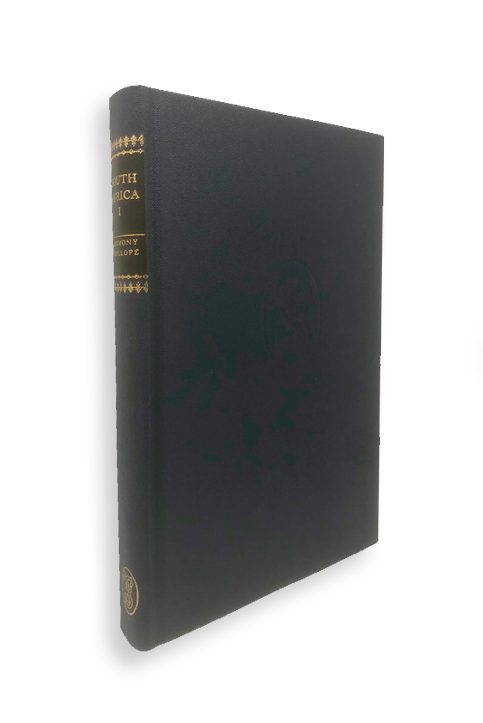South Africa ~ Volume 1
The Trollope Society Edition Clearance Sale is only available in the UK.
Original price was: £30.00.£5.00Current price is: £5.00.
Clearance Sale UK only
Coupons are not valid with this offer
Available to members only
Introduction by Anthony Kenny
352 pages (vol 1)
Trollope’s fourth travel book was written between July 1877 and January 1878. The author started it the day after he arrived in Capetown (two days after finishing John Caldigate) and finished it the day before he arrived in England. Just as the American Civil War had provided a vivid backdrop to North America, so Shepstone’s annexation of the Transvaal in 1877 prompted him to negotiate a book contract with Chapman and Hall for £850 prior to his trip. The result was this fascinating book. The topic was a difficult one. The author was fascinated with any country which housed English emigrants:
Our colonies are the land in which our cousins, the descendants of our forefathers, are living and still speaking our language.
Trollope’s stamina (he was 62) is extraordinary. Though he found the travelling particularly gruelling – much of it by stagecoach in sweltering heat – the narrative is fresh and immediate. In the first part of the book he invites us to accompany him as he visits an ostrich farm , and provides us with a wonderful portrait of a Cape politician, Saul Solomon, a discussion of Cape politics in general, and a tiny cameo of children playing in a park in Port Elizabeth. En route from Durban he gives us his wry picture of a fellow passenger who insists on bringing his 45-pound fish on board the coach. This contrasts with the second part of the book in which he reaches the Transvaal. Here Trollope equivocates, doubting that the British position over racial tensions is completely right: the British view in South Africa, he felt, stood between the native’s and the Boer’s.
The Briton …. knows that he has to get possession of the land and use it …but he knows also that it is wrong to take what does not belong to him … As I am myself a Briton I am not a fair critic … but it does seem to me that he is upon the whole beneficent, though occasionally very unjust.
South Africa amply displays the author’s broadmindedness, as well as showcasing his taste for both overview and vignette, all related with his characteristic dry humour.
